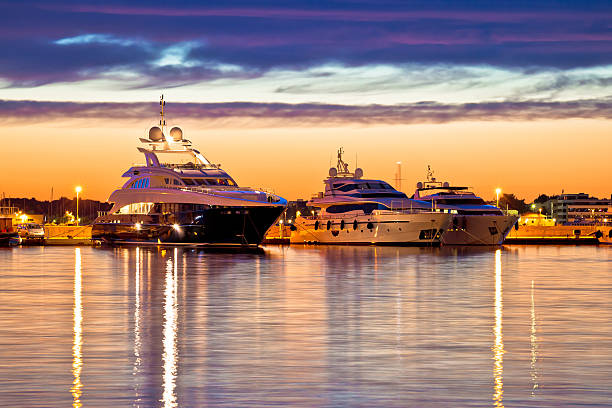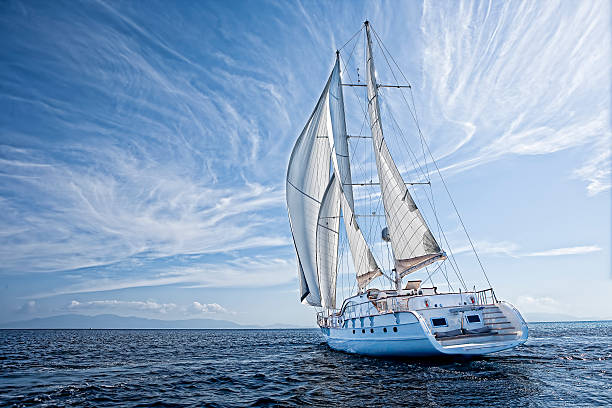Top Luxury Brands: The Pinnacle of Elegance and Prestige
Introduction to Luxury Brands
Luxury brands have always been synonymous with elegance, prestige, and superior quality. These brands set the benchmark in their respective industries, offering products that combine craftsmanship, innovation, and exclusivity. The world of luxury is diverse, encompassing fashion, jewelry, automobiles, and even real estate. The allure of luxury brands lies not just in the products themselves, but in the lifestyle they represent.
The History and Evolution of Luxury Brands
Luxury brands have a rich history that dates back centuries. Many of today's top luxury brands were founded in the 19th and early 20th centuries, and they have evolved over the years to adapt to changing tastes and technologies. The origins of luxury brands can often be traced back to small workshops and ateliers where master craftsmen created bespoke items for the elite. Over time, these brands expanded their offerings and began to cater to a broader audience, while still maintaining their exclusive image.
The industrial revolution and the rise of the middle class in the 19th century played a significant role in the evolution of luxury brands. With increased disposable income, more people began to seek luxury goods as a way to showcase their status and success. This period also saw the advent of modern marketing techniques, which helped luxury brands to establish their identity and appeal to a global audience.
Iconic Fashion Houses
Fashion is perhaps the most visible and influential sector of the luxury market. Iconic fashion houses such as Chanel, Louis Vuitton, and Gucci have become household names, known for their timeless designs and impeccable quality. These brands have a storied history and have consistently been at the forefront of fashion innovation.
Chanel, founded by Gabrielle "Coco" Chanel in 1910, revolutionized women's fashion by introducing simple yet elegant designs that emphasized comfort and style. Chanel's influence extended beyond clothing to perfumes, with Chanel No. 5 becoming one of the most famous fragrances in the world. The brand's commitment to quality and innovation has ensured its place as a leader in the luxury fashion industry.
Louis Vuitton, established in 1854, began as a maker of high-quality luggage. The brand's signature monogram and durable trunks quickly gained popularity among the elite. Today, Louis Vuitton offers a wide range of luxury products, including clothing, accessories, and footwear. The brand's dedication to craftsmanship and its ability to blend tradition with modernity have made it a symbol of luxury.
Gucci, founded in 1921 by Guccio Gucci, started as a small leather goods shop in Florence. Over the years, Gucci has become synonymous with Italian craftsmanship and innovative design. The brand's iconic green and red stripes and GG logo are instantly recognizable. Gucci's ability to reinvent itself while staying true to its heritage has made it a favorite among fashion enthusiasts worldwide.
Exquisite Jewelry and Watches
The world of luxury jewelry and watches is characterized by exceptional craftsmanship and timeless beauty. Brands such as Cartier, Tiffany & Co., and Rolex have set the standard for excellence in this sector. These brands create pieces that are not only aesthetically stunning but also hold significant sentimental and investment value.
Cartier, founded in 1847 by Louis-François Cartier, is renowned for its exquisite jewelry and watches. The brand's creations, such as the Love Bracelet and the Tank watch, have become iconic symbols of luxury and sophistication. Cartier's commitment to innovation and its ability to capture the essence of elegance have made it a favorite among royalty and celebrities.
Tiffany & Co., established in 1837 by Charles Lewis Tiffany, is known for its stunning diamond jewelry and the iconic blue box. The brand's engagement rings, particularly the Tiffany Setting, have become synonymous with love and commitment. Tiffany's dedication to quality and its timeless designs have solidified its reputation as a premier luxury jeweler.
Rolex, founded in 1905 by Hans Wilsdorf and Alfred Davis, is the epitome of luxury watchmaking. The brand's precision timepieces, such as the Submariner and the Day-Date, are renowned for their durability and elegance. Rolex's commitment to innovation and excellence has made it a symbol of success and achievement.
Luxury Automobiles: Engineering Masterpieces
Luxury automobiles represent the pinnacle of engineering and design. Brands such as Rolls-Royce, Bentley, and Ferrari are celebrated for their exceptional performance, comfort, and style. These brands create vehicles that are not only a means of transportation but also a statement of wealth and taste.
Rolls-Royce, founded in 1904 by Charles Rolls and Henry Royce, is synonymous with automotive excellence. The brand's vehicles, such as the Phantom and the Ghost, are known for their unparalleled luxury and craftsmanship. Rolls-Royce's commitment to perfection and its ability to create bespoke vehicles have made it a favorite among the elite.
Bentley, established in 1919 by W.O. Bentley, is renowned for its high-performance luxury cars. The brand's vehicles, such as the Continental GT and the Bentayga, combine power with elegance. Bentley's dedication to innovation and its ability to blend traditional craftsmanship with modern technology have made it a leader in the luxury automobile market.
Ferrari, founded in 1939 by Enzo Ferrari, is a symbol of speed and luxury. The brand's vehicles, such as the 488 GTB and the LaFerrari, are celebrated for their exceptional performance and stunning design. Ferrari's commitment to engineering excellence and its passion for racing have made it an icon in the automotive world.
The Rise of Luxury Real Estate
Luxury real estate is another sector that has seen significant growth in recent years. High-net-worth individuals seek exclusive properties that offer privacy, security, and unparalleled amenities. Brands such as Aman, Four Seasons, and Ritz-Carlton have expanded into the luxury real estate market, offering residences that combine the comforts of home with the services of a five-star hotel.
Aman, founded in 1988 by Adrian Zecha, is known for its ultra-luxury resorts and residences. The brand's properties, such as Amanpuri in Thailand and Amangiri in the United States, offer a unique blend of tranquility, privacy, and exceptional service. Aman's commitment to creating serene and harmonious environments has made it a favorite among discerning travelers and homeowners.
Four Seasons, established in 1960 by Isadore Sharp, is renowned for its luxurious hotels and residences. The brand's properties, such as Four Seasons Private Residences in New York and Four Seasons Resort in Bora Bora, offer unparalleled comfort and amenities. Four Seasons' dedication to excellence and its ability to create memorable experiences have made it a leader in the luxury hospitality and real estate market.
Ritz-Carlton, founded in 1983 by César Ritz, is synonymous with luxury and elegance. The brand's properties, such as The Ritz-Carlton Residences in Miami and The Ritz-Carlton Hotel in Paris, offer exceptional service and world-class amenities. Ritz-Carlton's commitment to creating unforgettable experiences and its attention to detail have made it a favorite among luxury travelers and homeowners.
The Impact of Technology on Luxury Brands
Technology has had a profound impact on the luxury industry, influencing everything from product design to marketing and customer engagement. Luxury brands have embraced technology to enhance the customer experience and to stay relevant in a rapidly changing world.
The rise of e-commerce has transformed the way luxury brands interact with their customers. Brands such as Burberry and Gucci have invested heavily in their online platforms, offering seamless shopping experiences and personalized services. The integration of augmented reality (AR) and virtual reality (VR) has also allowed customers to try products virtually, enhancing the online shopping experience.
Social media has become a powerful tool for luxury brands to connect with their audience and to showcase their products. Platforms such as Instagram and TikTok have allowed brands to reach a global audience and to create engaging content that resonates with younger consumers. Influencer partnerships and social media campaigns have become integral to luxury brand marketing strategies.
Sustainability and Ethical Practices in Luxury
Sustainability and ethical practices have become increasingly important in the luxury industry. Consumers are now more conscious of the environmental and social impact of their purchases, and they expect luxury brands to uphold high ethical standards.
Brands such as Stella McCartney and Chopard have been at the forefront of the sustainability movement in the luxury sector. Stella McCartney, founded in 2001 by the designer of the same name, is known for its commitment to cruelty-free and eco-friendly fashion. The brand uses sustainable materials and promotes ethical practices throughout its supply chain.
Chopard, established in 1860 by Louis-Ulysse Chopard, has made significant strides in promoting sustainable luxury. The brand has committed to using ethically sourced gold and has launched initiatives to support responsible mining practices. Chopard's dedication to sustainability and its efforts to promote ethical practices have set a new standard in the luxury jewelry industry.
The Future of Luxury Brands
The future of luxury brands is shaped by a combination of tradition and innovation. While the core values of craftsmanship, quality, and exclusivity remain unchanged, luxury brands are constantly evolving to meet the needs and expectations of a modern audience.
Personalization and customization are becoming increasingly important in the luxury industry. Brands are offering bespoke services that allow customers to create unique products that reflect their individual tastes and preferences. This trend towards personalization is driven by a desire for exclusivity and a deeper connection with the brand.
The integration of technology will continue to play a significant role in the future of luxury brands. Innovations in artificial intelligence (AI) and machine learning are enabling brands to offer more personalized experiences and to optimize their operations. The use of blockchain technology is also gaining traction, providing greater transparency and authenticity in the luxury market.
Sustainability will remain a key focus for luxury brands in the future. Consumers are demanding greater accountability and transparency from brands, and they expect luxury products to be produced ethically and sustainably. Brands that embrace sustainable practices and that promote environmental and social responsibility will continue to thrive in the luxury market.
Conclusion
Top luxury brands represent the pinnacle of elegance, craftsmanship, and innovation. From
fashion and jewelry to automobiles and real estate, these brands set the standard for excellence in their respective industries. The allure of luxury lies not just in the products themselves, but in the lifestyle and values they represent. As the luxury market continues to evolve, brands that stay true to their heritage while embracing innovation and sustainability will continue to lead the way in shaping the future of luxury.
.jpg)

.jpg)

